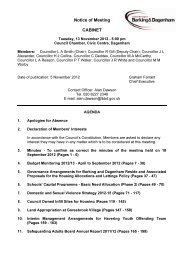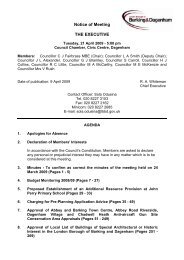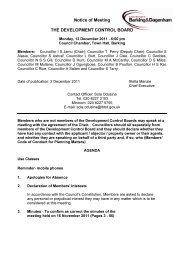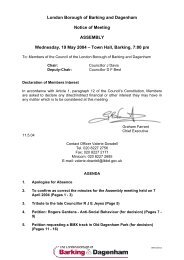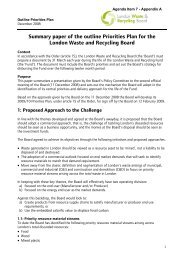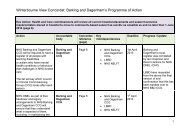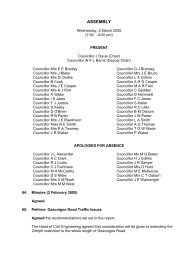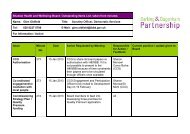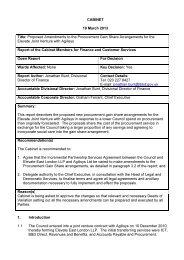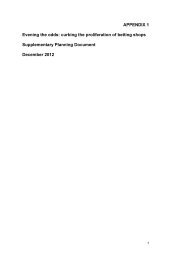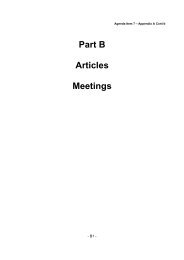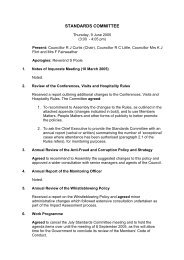Meetings, agendas, and minutes
Meetings, agendas, and minutes
Meetings, agendas, and minutes
You also want an ePaper? Increase the reach of your titles
YUMPU automatically turns print PDFs into web optimized ePapers that Google loves.
• In most schools, students contribute to the agenda.<br />
• Feedback was given in the form of <strong>minutes</strong> (written by a student clerk), via<br />
Assembly <strong>and</strong> newsletters.<br />
• Most schools had developed strategies to address problems raised in their<br />
meetings. For example, one school faced an issue around the school bus<br />
<strong>and</strong> contacted the CDCS requesting that she write a letter to help address<br />
the issue, which she had done.<br />
• In most schools students do feel that they receive explanations from school<br />
leaders for decisions <strong>and</strong> outcomes.<br />
• Very few school councils had direct contact with their governors.<br />
• Some schools additionally empowered the student voice by involving them<br />
with staff interviews, allowing them to observe lessons, <strong>and</strong> via surveys <strong>and</strong><br />
questionnaires.<br />
• Most schools demonstrated that they valued diversity.<br />
Primary schools<br />
• The ratings for seven schools were currently being finalised.<br />
• The majority appointed students to their school councils on the basis of<br />
elections with secret ballots by their peers.<br />
• Some school councils met during the school day <strong>and</strong> some met after<br />
school; however, those doing the latter usually saw a drop in attendance.<br />
• Generally, students recognise that decision making lies with the head<br />
teacher.<br />
• Feedback on action was given in classrooms <strong>and</strong> through notice boards.<br />
• The kind of issues being considered by school councils was promoting<br />
healthy food, bullying <strong>and</strong> religious diversity.<br />
• Schools had benefitted from visits to the Council's Town Hall chamber<br />
where Democratic Services gave presentations on local democracy last<br />
year.<br />
• School councils promoted values such as kindness, support <strong>and</strong> challenge.<br />
• They focussed on both the positive <strong>and</strong> negative things happening in their<br />
school <strong>and</strong> importantly, looked at how to improve the negative aspects.<br />
• They understood the role of teachers; for example, in relation to controlling<br />
behaviour, so everybody could learn.<br />
Main achievements<br />
• The main achievements of primary schools were around improving play<br />
facilities, consideration of the environment, school lunches, fund raising for<br />
charity, school transport, gardening <strong>and</strong> recycling.<br />
• Some highlights for secondary schools were participating in the teacher<br />
appointment process <strong>and</strong> evaluating teaching.<br />
The full report on this work would be shared with members soon. All schools would<br />
receive their individual report <strong>and</strong> the really positive thing about this work was that<br />
there were areas for improvement for all schools. The few schools who had not<br />
participated yet were being followed up. Three of these had requested to do<br />
conduct the visit after the Easter holidays, one had cancelled after the relevant<br />
member of staff went off sick <strong>and</strong> one stated that it was too busy to participate.<br />
The CSCD stated that she may raise this at the next meeting with head teachers if<br />
felt appropriate.<br />
The Lead Member stressed the need for the Committee to be provided the report



